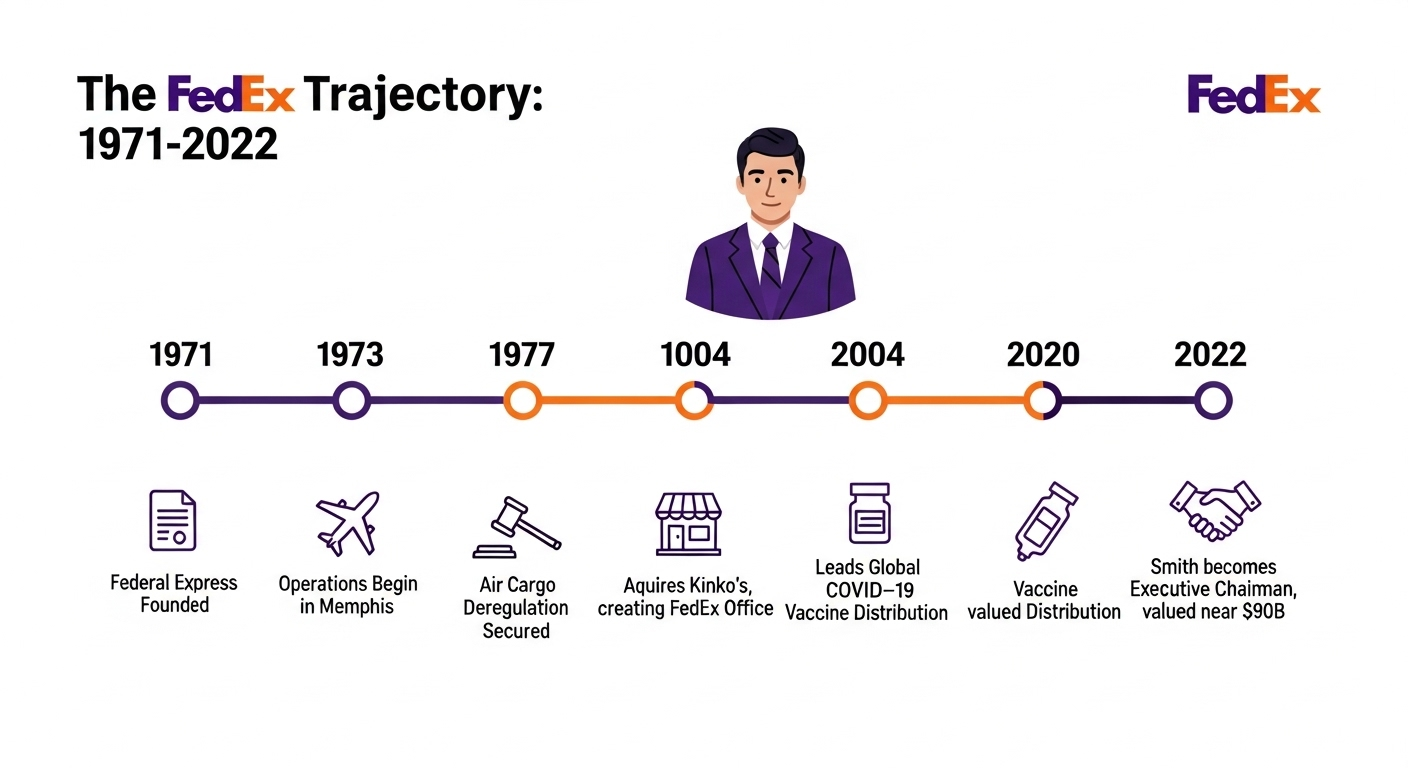The Visionary Who Redefined 'Overnight'
With the recent passing of Fred Smith at 80, the world lost the architect of the modern express delivery industry. More than a founder, he was, as FedEx CEO Raj Subramaniam described, the "heart and soul of FedEx" and its foundational "PSP culture." This is the story of how an audacious academic concept, military-forged leadership, and relentless strategic execution built a nearly $90 billion global empire operating in 220 countries.
From a 'C' Grade to a Global Network
The idea for FedEx originated in a Yale term paper where Smith outlined a revolutionary 'hub-and-spokes' system for time-sensitive shipments—a concept that famously earned him an average grade. He founded Federal Express in 1971, launching operations from Memphis in 1973 with 389 employees and 14 aircraft delivering just 186 packages to 25 cities. Facing early bankruptcy, Smith's legendary risk tolerance was proven when he flew to Las Vegas, winning $27,000 at blackjack to cover a critical $24,000 payroll, saving the company.
Anatomy of an Empire: Strategy in Action
Smith's strategic genius was multifaceted. He successfully lobbied for the 1977 air cargo deregulation, a pivotal move that allowed FedEx to acquire larger Boeing 727 aircraft and scale its air network. Strategic acquisitions then broadened its scope, creating FedEx Ground for truck-based delivery and establishing a retail presence through the purchase of Kinko's (rebranded as FedEx Office). This expansion into a multi-modal logistics giant, including FedEx Freight for pallet-sized shipments, cemented the company's status as a key economic bellwether.

The Marine Corps Ethos: Leadership and Legacy
Smith's leadership was forged in the U.S. Marine Corps, where he served two tours in Vietnam and earned a Silver Star. He considered this service more formative than his Yale education, a belief that became the bedrock of FedEx's "People-Service-Profit" (PSP) culture. A key lesson occurred when his troops dug his foxhole, teaching him that if you take care of your people, they will deliver the results. This leadership extended to civic life; President George W. Bush twice offered him the role of Secretary of Defense, and former Memphis Mayor Jim Strickland declared him the "most important Memphian of all time" for his profound economic and philanthropic impact on the city.
